Click to view our Accessibility Statement or contact us with accessibility-related questions






PRODUCTS YOU MAY LIKE
Trending Posts in Audiophile
itsamepe
Sennheiser PC37X randomly goes bad after disconnecting the cable ?
Greetings, Yesterday I was using my headset like normal with my macbook, just listening to music and on a call with people like usual, and the headset was perfectly fine. The stock wire that came with the headset is extremely long and yesterday it annoyed me very much that it kept getting tangled with itself, so I decided to see if the cable is replaceable. I pulled out the cable from the headset and saw the adapter, and looked online for a replacement. Upon plugging it back in, the audio sounded extremely muffled and washed out. Im not sure what I did wrong to make it mess up like that as I've always taken good care of it, ive had it for about 2 years and its always just been chilling on my desk, but anywho I thought the cable just went bad and ordered a replacement. The replacement came, and the issue is still persistant, so I am not sure what the issue is I've tried multiple different headsets and the issue is not with the port, and I also tried it with my windows laptop and...
Apr 23, 2024

MrChiSox
Big changes coming to my tiny little music room, I've recently purchased a new stack. Currently figuring out where to locate it all and ordering up the necessary cables, it won't be too long before I'm up and running. I am now the proud owner of a brand new stack. It's a European brand called Earmen. Amp, DAC, Streamer & Linear Power Supply. It won't be long!
https://www.youtube.com/watch?v=MB15yM4UptQ
Apr 23, 2024

Briankan
Recommendation for my next headphone set? I have Koss 95x
Hey all, What would you recommend I get next and why? I have Koss ESP-95x electrostatic massdrop headphones. These are my first and only audiophile set. I love them. I think my only real requirements is $500 or less for the headphones and that they have a little more low end. I don’t need thump but these are really light on lows…but the experience is still awesome. Also any recommendations on an amp? I only have my electrostatic thingy. I am using the Topping D50 DAC. thx!!
Apr 22, 2024

Simthaniel
Rigs
Modded headphones with qudelix at the core
When I received the Qudelix 5K, I had already modified a pair of Superlux HD-681 headphones. I previously soldered my own balanced connections to the drivers, providing multiple ways to connect and...
Apr 14, 2024

brothamike
A decent set of IEMs
I am in the midst of a 300 hour burn-in but, I will say I am enjoying how this set sounds so far. Before I received these which was btw late by a few weeks, I purchased a Sony/Kimber Kable MMCX...
Apr 12, 2024
merrick97
Should I exchange the PC38X for better headphones?
I bought the PC38X headphones FOR GAMING and they are great, but I have NO use for a Microphone since I don't do competitive gaming and I was wondering if there were better headphone options at a similar price without a headphone, where (presumably) more of the cost was put into making it sound better. I also find that my PC38X don't get quite as loud as I would like and I was wondering if a cheap amp like the iFi Go link would draw a little more volume out of my phones. https://www.amazon.com/dp/B0BN6MM822?psc=1&ref=ppx_yo2ov_dt_b_product_details I went with the PC38X since it was considered the best bang for buck headphones. I care most about using spatial apps like DOlby Atmos and DTS Headphone:X. Suggestions are welcome.
Apr 11, 2024

LostnAmerica
Sound Signature of the Grell Project.
Wondering what type of sound signature the Drop Grell project headphones will have or trying to attain. Any update would be appreciated.
Apr 8, 2024
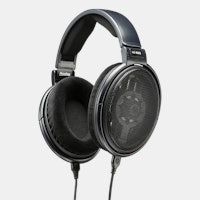
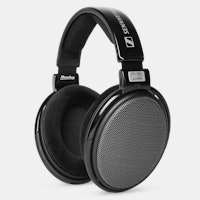
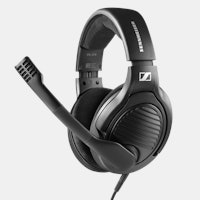
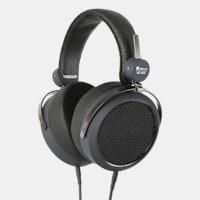
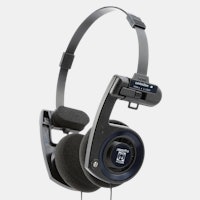
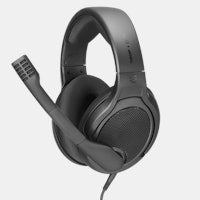
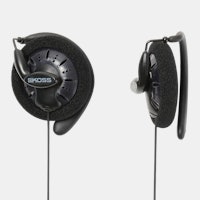
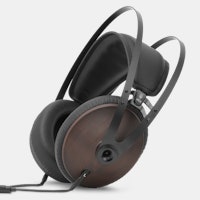
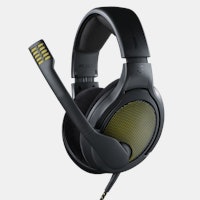
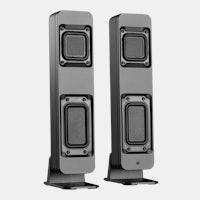
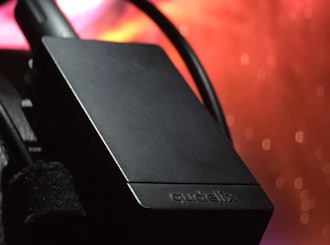

Oh, btw don't take blind tests too seriously. They're flawed in their own ways, and that's even more true when it comes to audio.
And you're correct that blind testing has it's flaws when it comes to audio, but that doesn't mean you should completely discount them. I feel that in this case, Tom's reasonably demonstrated that there is not a significant difference in quality between a good onboard audio chipset and other, more expensive options. And they were using an HD800 in this case, a headphone that costs over a thousand dollars and is considered to be super-high resolution.
Lastly, you're anecdote of plugging your headphones into different sources is FAR more useless than a blind test due to this little thing called the placebo effect, which happens to be even more powerful in the realm of audio than other areas of perception. Your mind is capable of manipulating what it hears into just about anything it wants. Perception is way more complicated that it looks as first glance. The brain isn't just some passive listener, it is an active signal processor.
At the end of the day, you should do what makes you happy. If that means spending lots of money on expensive audio equipment, that's fine, you will be rewarded whether or not there's an objective difference in sound quality. If there isn't, the placebo effect will make it sound better anyway, and in turn, make you happier. Me, personally, being frugal when possible makes me happy :)
And then "Due to time constraints, not all listeners tested all content."
With his blind testing, he made a lot of flaws. He's pretty much saying "I won't count this because it's obvious" or "I won't do that". And with some tests, all users got it correct. What matters the most is who and what is being tested. Someone with experience with listening to audio will be able to pick up the differences. Someone like my dad can't even tell the difference between $10 headphones and $100 headphones, unless you're telling me there's no difference between that either.
All I'm saying is don't be a fool to believe a hobbyist who writes an article who's opinion differs from the experts, and the majority of those who actually tried it.
I don't even think you read the full article. You read part of it, the parts you want to see, so you could convince yourself to believe you're getting the best. Can't we say you're doing the exact same? You don't even know who wrote it(It isn't Tom).
If anything, it makes the results more believable that they took the time to point out the flaws in their own study.
I read the entire article, however I'm really doubting that you did. The results overwhelmingly pointed to the conclusion that there is not a significant difference in quality/noise/whatever between the three sources. Hell, their conclusion page's title is literally "Anything Above $2 Buys More Features, Not Better Quality". That was their conclusion after analyzing their results and taking into account the flaws, which they talked about in detail.
I dunno why you so strongly want there to exist an objectively perceivable difference between sources. All that matters at the end of the day is the subjectively perceived difference. If you hear a difference, then you hear a difference, and no one can tell you otherwise. But never assume that the difference is anywhere besides within the confines of your own mind.
Do not underestimate the power of selective perception. I've witnessed it first hand in quite a few extreme cases. In one case, I picked up a container that had water in it, that I thought was lemonade. I took a few gulps, not noticing anything out of the ordinary. It wasn't until I saw the contents that I realized that I had drunk water, not lemonade. I tasted lemonade, not water. But I only had water.
If you truly believe something with all your heart, you will realize it.
If the brain can do that, it surely can manipulate the subtleties of music, which are FAR more subtle than the difference in taste between lemonade and water.
Anyway, I think it would be best to stop this conversation, as it doesn't really pertain to the product that's supposed to be discussed here. Though I wouldn't be opposed to continuing it elsewhere, if you'd really like to. Arguing is my pastime.